People
Boston College
The Schiller Institute for Integrated Science and Society
140 Commonwealth Avenue
Chestnut Hill, MA 02467
617-552-3503
schiller.institute@bc.edu
Office of the Executive Director
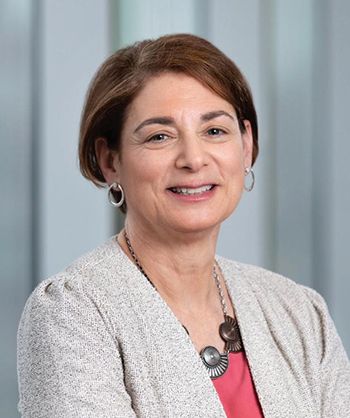
Laura J. Steinberg
Seidner Family Executive Director
Laura J. Steinberg
Seidner Family Executive Director
Laura J. Steinberg is the Seidner Family Executive Director of the Schiller Institute for Integrated Science and Society and Professor of Earth and Environmental Sciences. Dr. Steinberg has worked extensively on research in infrastructure management, disaster preparedness and response, environmental modeling, and higher education leadership. She served on the EPA Science Advisory Board, Drinking Water Committee and as an editor and advisory board member for Natural Hazards Review, Journal of Homeland Security and Emergency Management, and the Journal of Environmental Engineering. For the American Society of Civil Engineers, she served three terms as a member of the Industry Leaders Council representing civil engineering faculty members throughout the United States.
Previously, Laura was a tenured Professor of Civil and Environmental Engineering at Syracuse University where she held several positions including Special Assistant for Strategy to the Vice Chancellor, co-founder of the Syracuse University Infrastructure Institute, Executive Director of NY State’s Center of Excellence in Environmental and Energy Systems, and Dean of the College of Engineering and Computer Science.
Dr. Steinberg holds a B.S.E. in Civil and Urban Engineering from the University of Pennsylvania and an M.S and Ph.D. in Environmental Engineering from Duke University.
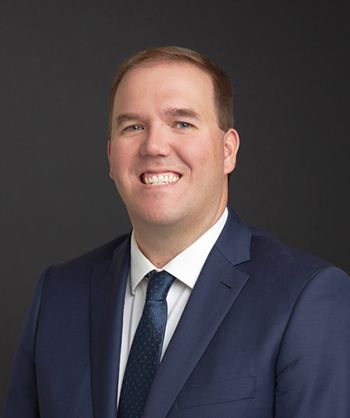
Greg Adelsberger
Director of Finance and Operations
Greg Adelsberger
Director of Finance and Operations
Greg Adelsberger is the Director of Finance and Operations for the Schiller Institute for Integrated Science and Society. In his role, Greg oversees the budgeting and financial planning for the Institute. He also works closely with the Seidner Family Executive Director on strategic planning and other initiatives led by the Institute.
Prior to joining the Schiller team, Greg served as the Associate Director of Finance and Administration for the National Research Mentorship Network (NRMN), a multi-million dollar NIH grant, administered by the Boston College Biology Department. He previously worked as a Senior Associate at PwC in their assurance practice in Northern Virginia.
Greg holds an MBA from the Carroll School of Management at Boston College and a BS in Accounting from the University of Maryland.

Kaley McCarty
Assistant Director, Programs
Kaley McCarty
Assistant Director, Programs
Kaley McCarty is the Assistant Director of Programs for the Schiller Institute for Integrated Science and Society. In her role, Kaley manages Schiller’s programming, including coordinating BC’s delegation to the annual United Nations climate conference (COP) and associated activities as well as the Working For and With Communities: Community Engaged and Project Based Learning for the Common Good course sequence.
Prior to working at Boston College, Kaley worked in higher education at University of Oregon as the Undergraduate Coordinator for the Oregon Consortium for International and Area Studies (OCIAS) before a stint in the university’s Human Resources Department. Her professional experience has been wide-ranging and has additionally included roles in two law firms, a multinational corporation, fine dining, and even a couple small organic farms. Most recently, she was the Employment Law Support Manager for the Law Offices of Scott Warmuth.
Having received her MA in Sociology from the Morrissey College of Arts and Sciences at Boston College, Kaley is thrilled to remain connected to the BC community and support Schiller’s work. She also holds a BS in Environmental Studies from the University of Oregon.
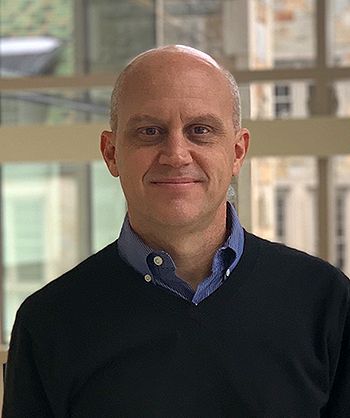
Erik Sjostrom
Administrative and Fiscal Assistant
Erik Sjostrom
Administrative and Fiscal Assistant
Erik Sjostrom is the Fiscal and Administrative Assistant for the Schiller Institute for Integrated Science and Society. Erik provides support for the Schiller team and Schiller's collaboration with associated departments.
Prior to Boston College, Erik held various roles with Harvard University Health Services, coordinating wellness offerings for students, faculty and staff. Erik holds a BA from Davidson College.
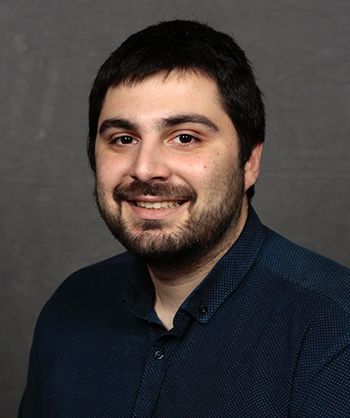
Stylianos (Stelios) Syropoulos
Postdoctoral Researcher
Stylianos (Stelios) Syropoulos
Postdoctoral Researcher
Stylianos (Stelios) Syropoulos is a postdoctoral researcher working for the Schiller Institute for Integrated Science and Society. He also works for the Morality Lab and the Social Influence and Social Change. His research focuses on the individual differences and social influences that drive intergenerational, environmental, prosocial, and moral decision-making. He conducts research on how perceptions of past and future generations' influence can motivate us to engage in prosociality or pro environmentalist, even when that action comes at a personal cost. Other research interests include how people think about and try to construct their personal legacy, how climate change influences people's mental health, as well as what gives rise to different forms of national identification and what its consequences are. Stelios has considerable expertise in quantitative methodologies, having worked as a methodology consultant for two years. He is skilled in and frequently employs multilevel/hierarchical linear modeling, longitudinal, dyadic (APIM) designs, and structural equation modeling. Stelios received his BA in psychology from Franklin and Marshall College in 2018 and received his PhD in Social Psychology with a concentration in the Psychology of Peace and Violence from the University of Massachusetts Amherst in Fall 2022.

Junsoo Chung
Undergraduate Assistant
Junsoo Chung
Undergraduate Assistant
Junsoo Chung is the Chief of Staff for Boston College’s COP30 delegation with The Schiller Institute for Integrated Science and Society. In this role, he helps coordinate delegate activities, supports research and outreach efforts, and contributes student insight to advance Schiller’s climate initiatives. Junsoo previously served as a delegate to COP29 in Baku, Azerbaijan. Originally from Seoul, South Korea, Junsoo is a member of the Boston College Class of 2026, pursuing a Bachelor of Arts in Economics. His academic and professional interests focus on the role of private capital in advancing the global energy transition. Prior to this role, Junsoo was a Summer Analyst at Blackstone, where he worked on the Corporate Sustainability team.

Magali De La Sancha
Undergraduate Assistant
Magali De La Sancha
Undergraduate Assistant
Magali is the current editor of The Scoop and manages the Schiller Institute for Integrated Science and Society’s social media. She is a junior double majoring in Neuroscience and Studio Art, with a minor in Philosophy. Alongside attending on-campus events hosted by the Schiller Institute, Magali participated in the 2025 Working For & With Communities program in Santiago, Chile; an experience that inspired her to share unique opportunities with other students and deepen her passion for service that reaches beyond campus. Beyond that, she enjoys dancing, cooking, and playing video games in her free time.

Jesse Julian
Schiller Institute Poet Laureate
Jesse Julian
Schiller Institute Poet Laureate
Jesse Julian is the inaugural Poet Laureate for the Schiller Institute for Integrated Science and Society. In her role, she composes and analyzes poetry relevant to Schiller’s research and focus, strengthening the awareness of poetry as a powerful medium for communicating valuable ideas. By doing so, she seeks to bridge the gap between science and the humanities.
Jesse was born and raised in Southern California. As a member of Boston College’s Class of 2026, she is finishing a Bachelor of Arts in English & Philosophy with a minor in Medical Humanities. In her first year, she received a prize from Schiller and the Clough Center for the top submission on energy, health, and the environment, answering “What the Constitution Means to Me.” She’s worked with Schiller since this event, expanding this new role to embody the interdisciplinary aspect of the Institute.
Jesse engages with diverse forms of writing outside of Schiller. She's the editor-in-chief for the Medical Humanities Journal, a writing specialist at BC's Writing Center, the publishing intern at 826 Boston, the undergrad intern for the Medical Humanities program, and a former satirist for the New England Classic. In her free time, she loves thrifting, exploring cafés, listening to music, and spending time with loved ones.

Lila Tabak
Graduate Assistant
Lila Tabak
Graduate Assistant
Lila Tabak is a graduate assistant for the Schiller Institute of Integrated Science and Society, where she manages and updates the institute's website. She attended the University of Michigan where she majored in Psychology and minored in Crime and Justice. She is currently pursuing her master’s in Social Work at Boston College. She is passionate about working clinically to support individuals harmed by the justice system.
.jpg)
Dominique Williams
Undergraduate Assistant
Dominique Williams
Undergraduate Assistant
Dominique Williams is an undergraduate assistant for the Schiller Institute of Integrated Science and Society. Her role is to assist with the planning of diverse programs, aimed at fostering cross-campus connections with the work of the Institute.
Dominique is originally from the twin-island Federation of Saint Kitts and Nevis. Her interests mainly exist in the social, economic, and environmental vulnerabilities faced by marginalized communities that are exacerbated by the climate crisis. She is also a member of the St Kitts National Youth Parliament Association, which advocates for sustainable development in the Federation and the wider Caribbean region. She has also interned at the Caribbean Centre for Renewable Energy and Energy Efficiency.
She is excited to join Boston College to expand her experience serving communities in the greater Boston area and to continue her studies focusing on the intersectional issues associated with climate change.

Julia Wowkun
Undergraduate Assistant
Julia Wowkun
Undergraduate Assistant
Julia Wowkun is an undergraduate assistant for The Schiller Institute for Integrated Science and Society. Her responsibilities include providing research support, creating marketing materials and graphics, performing administrative tasks, and offering student insight for developing projects.
Julia is originally from Franklin Lakes, New Jersey. As a member of the Boston College Class of 2026, Julia is currently pursuing a Bachelor of the Arts in Environmental Studies with a Concentration in Entrepreneurship and a minor in Finance. Julia has also completed a course entitled Environmental Economics and Sustainable Development at the London School of Economics in the summer of 2023 and looks to continue her education and experience in this field around the BC campus and in the greater Boston community. Outside of academics, Julia is an athlete on the Boston College Division I Cross Country / Track & Field team and participates in fundraising efforts for BC's American Cancer Society Relay For Life chapter.
.jpg)
Omer Yurekli
Undergraduate Assistant
Omer Yurekli
Undergraduate Assistant
Omer Yurekli is a senior at Boston College majoring in Computer Science with a minor in Arabic. At the Schiller Institute, he works as a programmer supporting ongoing projects that integrate computing and interdisciplinary research. Beyond Schiller, Omer serves as a Teaching Assistant for the course Generative AI: Mathematics and Applications and is actively involved in projects spanning software testing, natural language processing, and human - AI interaction. He is particularly interested in how advanced computing methods can be applied to challenges at the intersection of technology, science, and society.
Institute Core Faculty
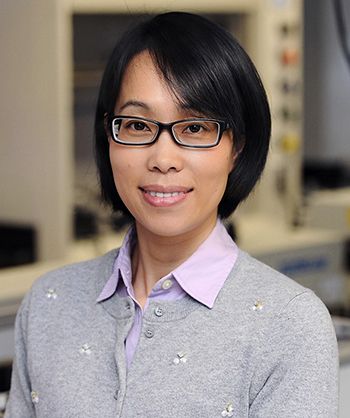
Jier Huang
Institute Professor of Renewable Energy and Sustainability
Jier Huang
Institute Professor of Renewable Energy and Sustainability
Jier Huang is the Institute Professor of Renewable Energy and Sustainability and Professor of Chemistry. Dr. Huang’s research focuses on developing cutting edge materials with atomic/molecular precision to address fundamental challenges in sustainable energy and climate change. She is particularly interested in using advanced physical methods to understand how solar energy is captured by the materials, how it travels through the materials, and how it can be directed to perform solar energy conversion. She has authored more than 80 peer-reviewed journal papers and is a recipient of NSF CAREER and DOE career research award. Dr. Huang has served as Chair of Energy Subdivision in ACS Physical Chemistry, Executive Committee Member At-Large in ACS Physical Chemistry Division, Advanced Photon Source Users Organization Steering Committee, etc. Previously, Dr. Huang was a Wehr Distinguished Professor and Associate Professor of Chemistry at Marquette University.
Dr. Huang holds a B.S. in Chemistry from Lanzhou University (China) and Ph.D. in Physical Chemistry from Emory University.
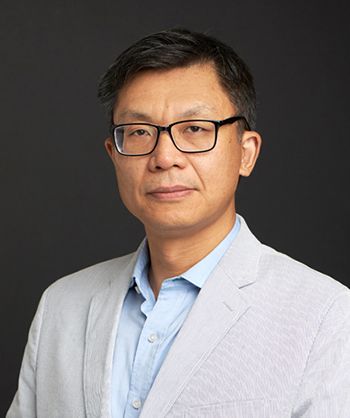
Yi Ming
Institute Professor of Climate Science and Society
Yi Ming
Institute Professor of Climate Science and Society
Yi Ming is the Institute Professor of Climate Science and Society and Professor of Earth and Environmental Sciences. Dr. Ming uses climate models, observations and theories to elucidate the physical mechanisms governing Earth’s climate system and applies the fundamental understanding to practical issues of societal and policy importance. A current focus is on how climate change may affect precipitation patterns (e.g. droughts and floods) and extreme events (e.g. hurricanes, wildfires and winter storms). He has authored more than one hundred peer-reviewed papers, and mentored a number of Ph.D. students and postdocs. His honors include the U.S. Presidential Early Career Award for Scientists and Engineers (PECASE), the World Meteorological Organization (WMO) Norbert Gerbier-Mumm International Award, the American Meteorological Society (AMS) Henry G. Houghton Award and the American Geophysical Union (AGU) Ascent Award. Previously, Dr. Ming was a Senior Scientist and Divisional Leader at the U.S. National Oceanic and Atmospheric Administration (NOAA) Geophysical Fluid Dynamics Laboratory (GFDL). He was also a faculty member of the Program in Atmospheric and Oceanic Sciences (AOS) at Princeton University.
Dr. Ming holds a B.E. in Chemical Engineering (with a second B.E. in Environmental Engineering) from Tsinghua University and a Ph.D. in Civil and Environmental Engineering from Princeton University.
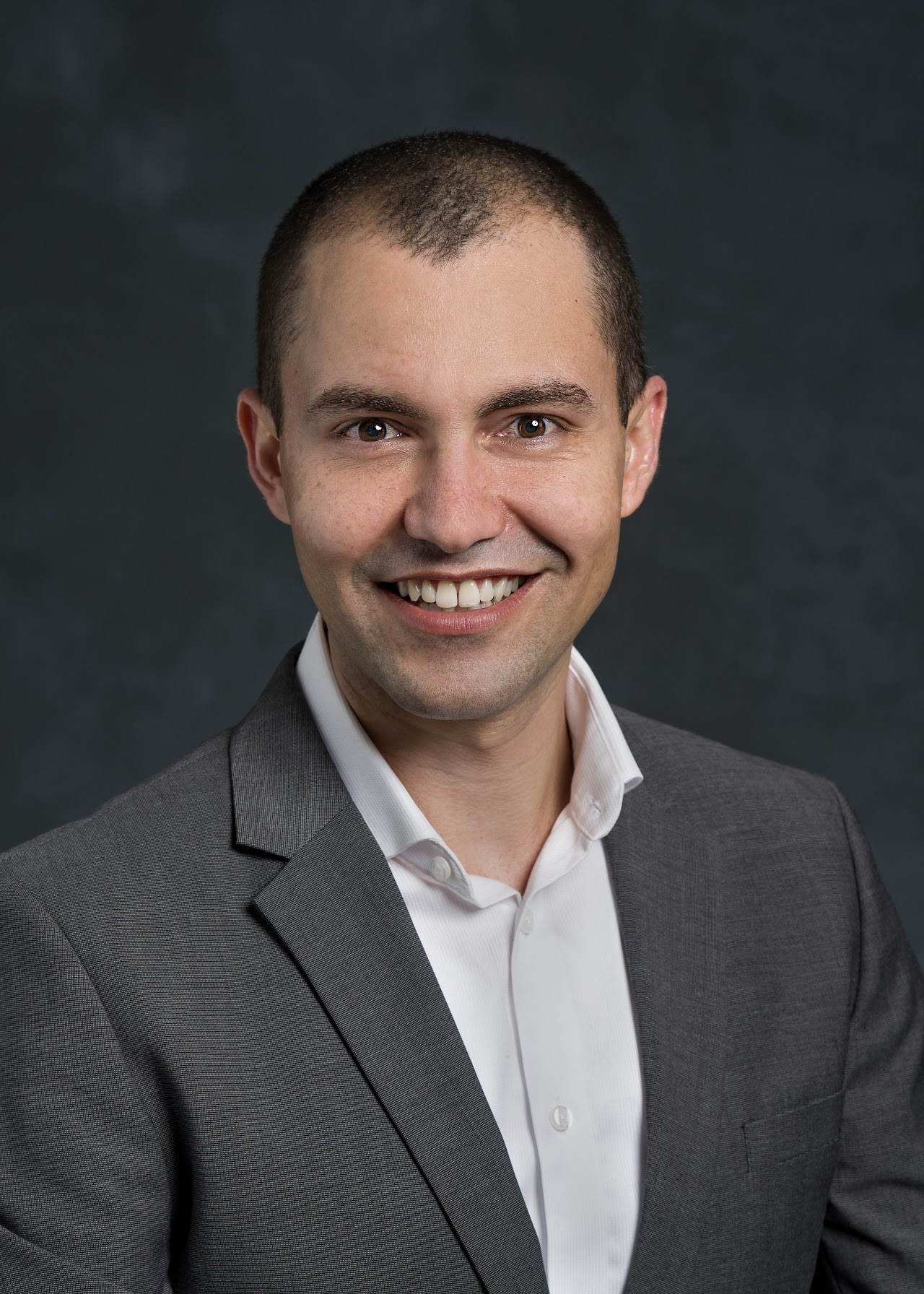
Edson Severnini
Institute Professor
Edson Severnini
Institute Professor
Edson Severnini is a Core Faculty member at the Schiller Institute for Integrated Science and Society and an Associate Professor of Economics at Boston College. He also serves as a Non-Resident Senior Research Fellow at the United Nations University–World Institute for Development Economics Research (UNU-WIDER), a Research Fellow at the Institute of Labor Economics (IZA), and a Research Associate at the National Bureau of Economic Research (NBER), where he is affiliated with the Environment and Energy Economics, Children, Development of the American Economy, and Economics of Health programs.
His research lies at the intersection of energy, environmental, and health economics, focusing on climate change, energy transitions, and the historical impacts of pollution and electrification. He examines the effects of energy access expansion, pollution, and environmental policy on local development, health outcomes, and firm behavior since the age of electrification. He is also interested in how climate change influences air pollution, electricity generation, and infectious diseases, as well as the effects of economic activity on environmental outcomes.
Professor Severnini’s research has been supported by the U.S. National Science Foundation and has been published in leading journals such as American Economic Review, Nature Energy, Review of Economics and Statistics, Economic Journal, and Environmental Science & Technology. He was also a winner of the European Association of Environmental and Resource Economists (EAERE) Award for Outstanding Publication in their flagship journal in 2023. Additionally, he is a member of the Editorial Board for Proceedings of the National Academy of Sciences (PNAS) Nexus. He joins Boston College from Carnegie Mellon University, where he was a tenured Associate Professor of Economics and Public Policy.
He earned his Ph.D. in Economics from the University of California, Berkeley, his M.Sc. in Economics from the Pontifical Catholic University of Rio de Janeiro, and his B.A. in Economics from the University of São Paulo.
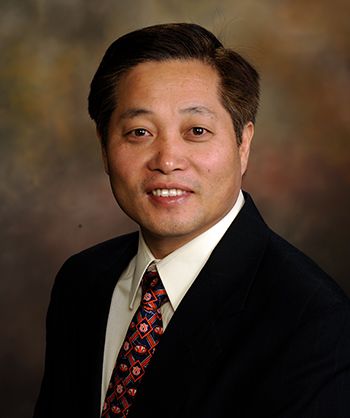
Hanqin Tian
Institute Professor of Global Sustainability
Hanqin Tian
Institute Professor of Global Sustainability
Hanqin Tian is the Institute Professor of Global Sustainability and Professor of Earth and Environmental Sciences. Dr. Tian’s research and teaching concentrate on the broad area of climate and sustainability sciences. He has been pursuing a data-driven systems approach to understanding, quantifying, and predicting drivers and effects of global-scale changes in the biosphere, climate, and human activity. He has worked across the disciplinary lines of ecology, biogeochemistry, hydrology, economics, earth system modeling, and data science. His research covers a wide range of topics, including studies of climate change impacts, mitigation and adaptation at multiple scales from local to global.Through the integration and communication of knowledge across the physical, ecological, and human systems, Dr. Tian intends to advance scientific understanding of complex interactions among climate, ecosystems, and humans for providing science-based solutions to climate change and sustainability challenges. His research has resulted in over 300 peer-reviewed journal papers, including 30 papers published in Nature/Science/PNAS and their sister journals, with over 35,000 citations and an H-index of 91 (Google Scholar).
Dr. Tian is a coordinating lead author for the International Nitrogen Assessment and a contributing author for IPCC AR6. He has served on the Scientific Steering Committee of Global Carbon Project (GCP) and as Co Chair for the international consortium of Global Nitrous Oxide Budget Assessment supported by GCP and the International Nitrogen Initiative (INI). Dr. Tian is an elected Fellow of the American Association for the Advancement of Science (AAAS), the American Geophysical Union (AGU), and the Ecological Society of America (ESA). He was named an Andrew Carnegie Fellow (Brainy Award) in 2019.
Previously, Hanqin Tian held the Solon and Martha Dixon Endowed Professorship and Alumni Professorship at Auburn University. He also held several leadership roles at Auburn, including serving as Director of the International Center for Climate and Global Change Research, and Leader for the interdisciplinary cluster of the Climate, Human and Earth System Science (CHESS), which consists of over 40 faculty members from five Colleges at Auburn University.
Institute Affiliated Faculty
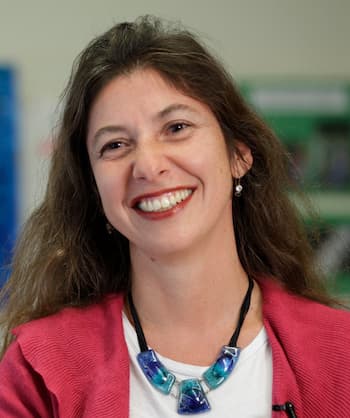
Marina Bers
Department of Formative Education
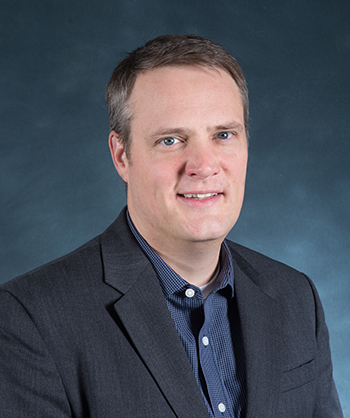
John Christianson
Psychology Department
John Christianson
Psychology Department
The focus of John Christianson's research is to determine how stress interacts with the neural systems that permit individuals to adapt to potentially dangerous and changing environments. The current emphasis is on the neural mechanisms that underly social decision-making. The laboratory employs a multidisciplinary approach to study brain circuits and behavior with the overall goal of providing new insight into the organization of the brain and behavior and improving treatment for psychological illness.
Professor Christianson has served on several Schiller Institute search committees and is committed to developing strong integrated science programming at Boston College.
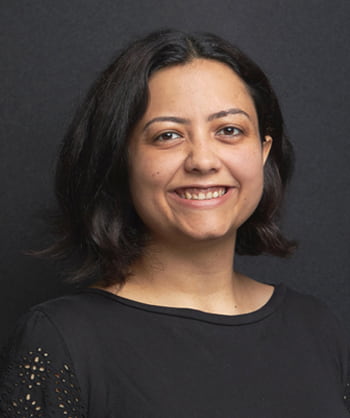
Avneet Hira
Engineering Department
Avneet Hira
Engineering Department
Avneet Hira conducts research in the interdisciplinary field of engineering education, focusing on educational technologies and human-centered engineering in K-12, first-year engineering, and informal learning contexts. Her lab's current projects include promoting belonging and reducing harm to people and the environment in technology-rich P-12 settings, restorative AI-enhanced farming, informal education and community co-design for climate adaptation, developing Maker literacies in early childhood, and co-designing transdisciplinary STEM pedagogies with teachers.
She has been involved with the Schiller Institute as a SIGECS and SI-RITEA grantee for her work on intergenerational STEM education and work in Northern Kenya for sustainable peacebuilding. As an interdisciplinary scholar herself, she is interested in finding ways in which the institute can support other interdisciplinary scholars, especially junior faculty at BC.
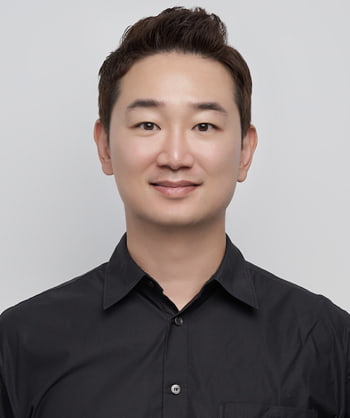
S Mo Jones-Jang
Communications Department
S Mo Jones-Jang
Communications Department
S Mo Jones-Jang from the department of Communication uses social scientific methods to study individuals’ information behavior of science and health information. His research topic includes politicization of science topics (e.g., climate change and vaccines), media effects on science and health beliefs, and science misinformation. Mo is leading the NSF-funded project, “Science in the Age of Misinformation: Strategies for Rebuilding Trust in Science” from 2024 to 2027.
Professor Jones-Jang was first involved with the Schiller Institute as a awardee of the Schiller grant (SI-GECS). Since then, he has been a loyal fan of the Schiller to meet with colleagues across campus and create collaborative projects and grant proposals.
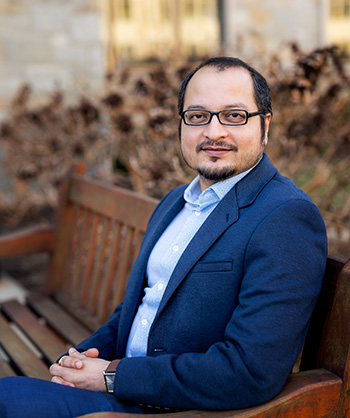
Praveen Kumar
School of Social Work
Praveen Kumar
School of Social Work
Dr. Praveen Kumar is an Associate Professor at the Boston College School of Social Work. He is also a faculty affiliate of the Environmental Studies Program, the Global Public Health and the Common Good Program, and the Schiller Institute for Integrated Science and Society, at Boston College. He works in the area of climate change adaptation, wherein he focuses on the human dimensions of climate and environment, particularly in South Asia and Sub-Saharan Africa. The overall objective of his research is to examine interventions that address the health and well-being of marginalized communities vulnerable to climate and environmental risks. A significant thrust within his scholarship on climate and environment is understanding the causes and consequences of household energy access in the context of climate change, health, and well-being. He harnesses field-based studies, systematic reviews, secondary datasets, and system science approaches, particularly social network analysis, to advance his research. He also leverages his methodological expertise in social network analysis to collaborate with scholars and practitioners in cognate areas, including mental health, food and agriculture, and women’s empowerment. He was the NIH Climate Change and Health Scholar for the year 2023, wherein he contributed to strengthening their strategic initiative on climate adaptation.
Dr. Kumar has a continuing association with the Schiller Institute. He was a committee member for the Schiller Institute core faculty search as well as a recipient of the SI-RITEA 2024 grant to advance his research in climate-led migration and just transition in Bangladesh. In addition, he co-led the BC delegates to the UN Climate Change Conferences (COP) in Dubai in 2023 and Baku in 2024, which were sponsored by the Schiller Institute. These delegates included faculty from multiple schools, along with graduate and undergraduate students.
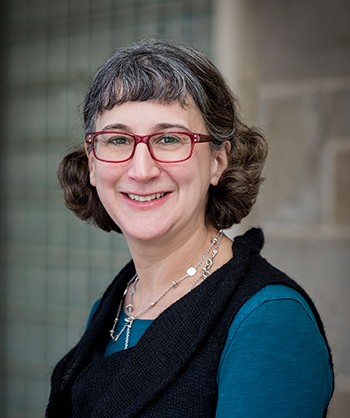
Becca Lowenhaupt
Department of Educational Leadership & Higher Education
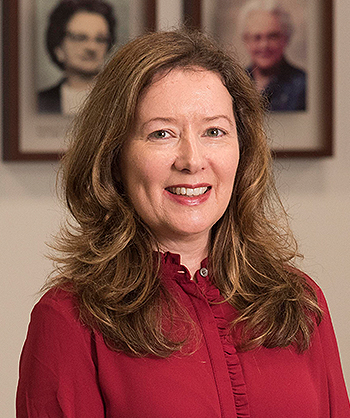
Karen Lyons
Connell School of Nursing
Karen Lyons
Connell School of Nursing
The focus of Karen Lyons’ research is to understand the interpersonal context of chronic illness in midlife and older adults and their family care partners to optimize their mental and physical health. Working across illness contexts (e.g., cancer, heart failure, Parkinson’s disease, dementia), her team has made important conceptual and methodological contributions to dyadic health research over the past 25 years. The current focus is on testing and evaluating behavioral interventions to improve health outcomes and to identify care dyads that are most vulnerable to experiencing poor mental health.
Professor Lyons has served on several Schiller Institute search committees, reviewed Schiller grants, and is committed to supporting the Schiller’s focus on the intersection of health and climate, particularly for older adults.
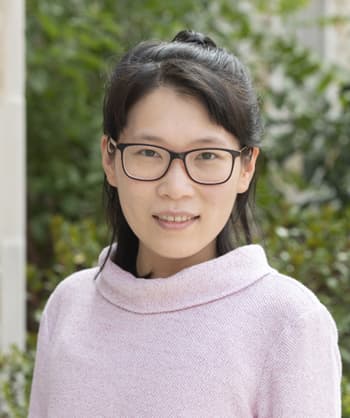
Qiong Ma
Physics Department
Qiong Ma
Physics Department
Prof. Qiong Ma leads a Physics research group focused on designing, detecting, and manipulating nanoscale quantum phases in novel van der Waals materials. The group aims to uncover emergent functionalities and develop transformative devices from these quantum nanomaterials with applications in sustainable computing, energy, and environmental solutions. Recent breakthroughs from the Ma group include the discovery of a new material enabling high-speed, energy-efficient computing, the development of cutting-edge energy-efficient AI hardware, and the creation of a novel device capable of harvesting ambient electromagnetic waves to power sensors.
Prof. Ma was a core local co-organizer for the 2024 APS Northeast Conference for Undergraduate Women in Physics (CUWiP), held at Boston College from January 19–21, 2024. The event, which hosted over 200 participants, received substantial support from the Schiller Institute for Integrated Science and Society. As a Schiller Faculty Affiliate, Prof. Ma is committed to strengthening connections between Physics and the Schiller Institute. Her efforts will extend beyond research to include media engagement and outreach initiatives, aiming to enhance the impact of physics and integrated sciences at Boston College. She is also dedicated to improving the representation of women in physics by leveraging the resources and networks of the Schiller community.

C. Shawn McGuffey
Sociology Department
C. Shawn McGuffey
Sociology Department
C. Shawn McGuffey, Ph.D., is Professor of Sociology and past Director of African & African Diaspora Studies at Boston College. A native of Lexington, Kentucky, Dr. McGuffey’s professional work primarily highlights how race, gender, sexuality and social class both constrain and create the choices survivors pursue in the aftermath of trauma in the U.S. and throughout the African Diaspora. He is currently exploring the intersection of race, gender, geography and environment with Black communities living in both landlocked and oceanic/coastal topographies.
Professor McGuffey was first involved with the Schiller Institute as a steering member on its environmental racism webinar task force and has since served as a member of a Schiller Core Faculty search committee; “I love interdisciplinary work and I think Schiller just gets it. We all talk about interdisciplinary work and I think Schiller does it well.”
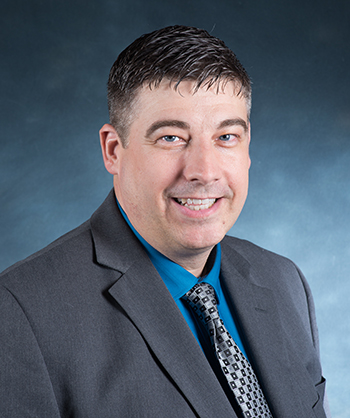
Daniel McKaughan
Philosophy Department
Daniel McKaughan
Philosophy Department
Daniel J. McKaughan is an Associate Professor of Philosophy at Boston College. Dan grew up in Oregon and studied chemistry and biology at the University of Oregon before pursuing his doctorate in History and Philosophy of Science at the University of Notre Dame, where he was a National Science Foundation Graduate Research Fellow and, subsequently, a Sorin Postdoctoral Fellow. Dan has published articles in journals such as Philosophy of Science, Isis, Biology and Philosophy, Religious Studies, and Science on a wide range of topics in philosophy of science, philosophy of biology, epistemology, philosophy of language, philosophy of religion, science and values, American pragmatism, and the historical foundations of molecular biology. Most recently, he has been thinking and writing about the nature, value, and rationality of faith and faithfulness. He is co-editor, with Holly Vande Wall, of History and Philosophy of Science: A Reader (Bloomsbury, 2018) and of a forthcoming three volume series History and Philosophy of Western Science: From Antiquity to the 19th Century.
Philosophers of science get to ask and try to answer really cool questions about science as a human activity which scientists themselves don’t often try directly to answer as part of their professional work—questions such as: Can we theorize a role for values in science without compromising its objectivity? What is the nature of truth? What makes an inquiry, its theories, and its results scientific or non-scientific? What ethical responsibilities do scientists have to each other and to the public, and how ought these shape their scientific activities? How can scientists communicate science effectively, so as to increase public trust in its claims? And what exactly is trust, anyway? One of the courses Dan regularly teaches is New Scientific Visions I & II (Perspectives IV: History & Philosophy of Science), an intensive year-long introduction to the history and philosophy of science emphasizes engagement with primary sources (e.g., Aristotle, Copernicus, Kepler, Galileo, Newton, Darwin, and Einstein).
Professor McKaughan has served on several job search committees for several senior level hires at the Schiller Institute and also as a grant collaborator a Schiller Institute Grant for Exploratory Collaborative Scholarship (SIGECS) as part of an interdisciplinary Team at Boston College: Liane Young & Isaac Handley-Miner (Psychology and Neuroscience), Daniel McKaughan & Richard Atkins (Philosophy), and Mo Jang (Communications). He has also partnered with several teams of psychologists for work on other grants.
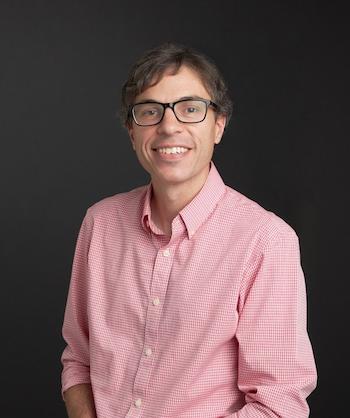
George Mohler
Computer Science Department
George Mohler
Computer Science Department
The focus of George Mohler’s research is the development and application of statistical and machine learning methods for solving
problems in criminal justice and public health. Several current projects in Mohler’s lab include modeling the impact of law
enforcement drug seizures on overdose, assessing the impact of gunshot detection technology on reducing gun violence, and
modeling viral processes in coupled online-offline systems.
At the Schiller Institute, Professor Mohler has served on the Data Science and Faculty Search committees.
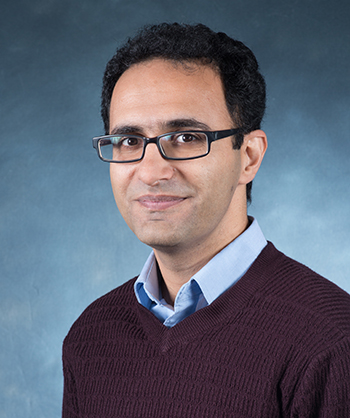
Babak Momeni
Biology Department
Babak Momeni
Biology Department
Babak Momeni's research is under the broader umbrella of microbial ecology and focuses on harnessing microbial potentials for applications in health, industry, and the environment. Current research activities include investigating how human nasal microbiota can protect us from diseases, discovering and using microbes to remove food contaminants and achieve food safety, and employing special bacteria to recycle lithium-ion batteries. The laboratory employs an interdisciplinary approach, combining mathematical modeling, computational analysis, and experimental investigations.
Professor Momeni is a former recipient of a collaborative SIGECS award and is committed to expanding cross-disciplinary links within the Boston College community to address important societal challenges.
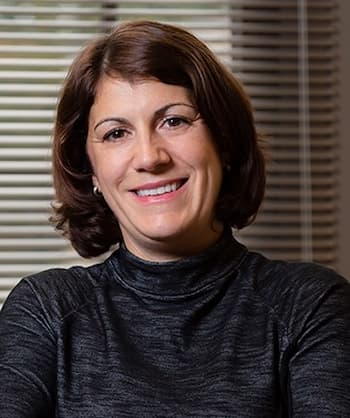
Gergana Y. Nenkov
Marketing Department
Gergana Y. Nenkov
Marketing Department
Gergana Nenkov is a behavioral scientist whose research is focused on understanding and helping improve the sustainable behaviors of consumers and firms at the acquisition (e.g., buying sustainable products, buying second-hand products, limiting consumption) and disposal (e.g., recycling, upcycling, repair) stages of the consumer decision journey. She teaches an undergraduate course at CSOM entitled: Sustainable Behavior of Consumers, Firms, and Societies. Prof. Nenkov was a first involved at the Schiller Institute as a member of the Boston College delegation to the United Nations 28th Conference of the Parties (COP28) Convention on Climate Change in 2023.
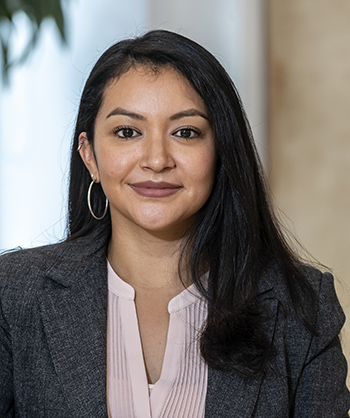
Maria Fernanda Piñeros-Leaño
School of Social Work
Maria Fernanda Piñeros-Leaño
School of Social Work
María Fernanda Piñeros Leaño, PhD, MSW, MPH is an Associate Professor in the School of Social Work at Boston College. A native of Bogotá, Colombia, Dr. Piñeros’ work focuses on addressing mental health disparities among Latina immigrant women globally. She does this by working closely with community members in the development and implementation of culturally- relevant mental health interventions.
Dr. Piñeros Leaño has been involved with the Schiller Institute since 2022, when she attended COP27 as part of the delegation from Boston College. Dr. Piñeros Leaño has also been part of the COP selection committee. Trained in transdisciplinary science, Dr. Piñeros Leaño highly values integrated efforts to address complex societal issues.

Min Song
English Department
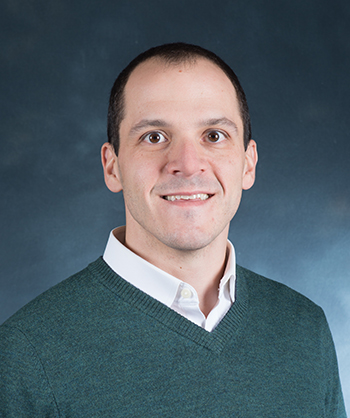
Richard Sweeney
Economics Department
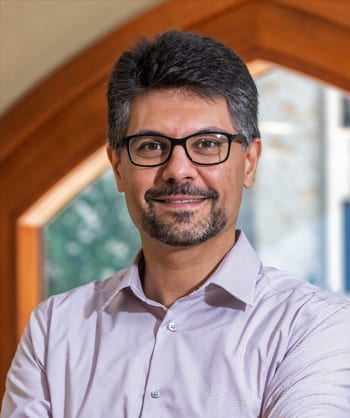
Fazel Fallah Tafti
Physics Department
Fazel Fallah Tafti
Physics Department
Fazel Tafti is a condensed matter physicist specialized in quantum materials. His research group operates at the nexus of physics, chemistry, and materials science, with a focus on designing novel materials for quantum sensing and quantum information technologies. His work also extends to energy-related and sustainability-focused materials, including magnetocaloric and superconducting compounds. These efforts align closely with the Schiller Institute's core research themes in energy and the environment.
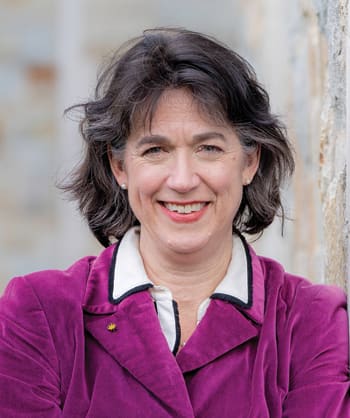
Conevery Bolton Valencius
History Department
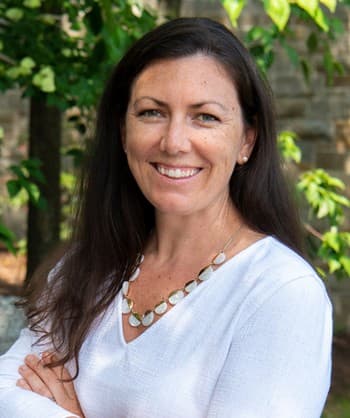
Brittney van de Water
Connell School of Nursing
Brittney van de Water
Connell School of Nursing
Brittney van de Water’s research aims to improve health equity through nursing research in TB and HIV implementation science and global health systems strengthening. Most of her research takes place in sub-Saharan Africa with multiple studies being implemented in the Eastern Cape, South Africa and a precepting program aimed at increasing confidence and competence among nurses and midwives being implemented in Malawi and Sierra Leone through her role as Associate Director of Pediatric Nursing at Seed Global Health. Professor van de Water has had a SI-RITEA grant funded through the Schiller Institute and she currently serves on their search committee. She is committed to interdisciplinary education and is trained in nursing science, global health, implementation science and pediatric TB epidemiology.

Sandra Waddock
Carroll School of Management
Sandra Waddock
Carroll School of Management
Sandra Waddock is Galligan Chair of Strategy, Carroll School Scholar of Corporate Responsibility, and Professor of Management in the Boston College Carroll School of Management. Author of more than 200 papers and chapters, she has published 16 books, the latest of which is Catalyzing Transformation: Making System Change Happen. A member of the IPBES (Intergovernmental Panel on Biodiversity and Ecosystem Services) Transformative Change Assessment, Waddock focuses on how transformational change towards flourishing ecological and social (eco-social) systems for all, including both humans and nature, can be brought about. Her work emphasizes many aspects of such transformative changing, including eco-social imaginaries, shifting strategic management practice, and stewardship of whole systems, among others. Waddock's work is interdisciplinary in its nature and fits well with the focus of Schiler.

Liane Young
Psychology Department
Liane Young
Psychology Department
Liane Young is the Director of the Morality Lab in the Psychology & Neuroscience Department at Boston College. Her lab investigates the cognitive and neural mechanisms that support human social cognition, with a focus on moral judgment and decision making. Current research areas include: intergenerational concern and empathy; perceptions of public virtue and virtue discounting; the impact of social norms on prosocial behaviors; the influence of complex social identities on intergroup attitudes; the role of essentialism in attitudes toward marginalized groups; factors that shape how people think about what is true. The Morality Lab uses the tools of social psychology and neuroscience, including online surveys, fMRI, and computational methods, to address questions in these areas, and leverages research insights to develop interventions for social change in collaboration with field partners.
The lab’s work on the psychology of truth, in collaboration with scholars in philosophy and communication, has been generously supported by the Schiller Institute. Professor Young has also partnered with the Institute on a line of research aimed at understanding the impact of engagement in interdisciplinary work on intellectual humility. The Morality Lab has also collaborated with scholars on campus and beyond in philosophy, theology, communication, political science, counseling, education, computer science, management and organization, and law. Visit here to learn more.
Global Public Health and the Common Good
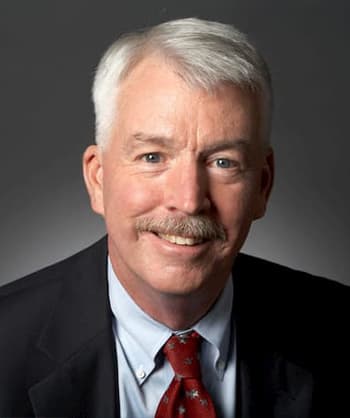
Philip J. Landrigan
Director
Philip J. Landrigan
Director
Philip J. Landrigan is the Director of the Program for Global Public Health and the Common Good. In addition to leading the program, he advises students, and teaches and conducts public health research within the Program. Dr. Landrigan is a pediatrician, public health physician and epidemiologist. His research uses the tools of epidemiology to elucidate connections between toxic chemicals and human health, especially the health of infants and children. He is particularly interested in understanding how toxic chemicals injure the developing brains and nervous systems of children and in translating this knowledge into public policy to protect health. He is a member of the National Institute of Medicine. Please see his faculty page for further information.
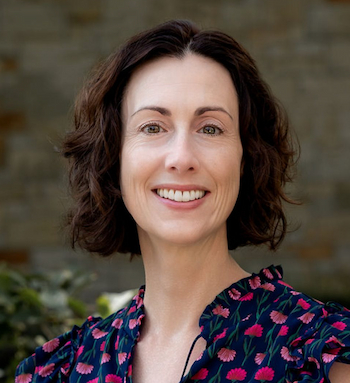
Summer Hawkins
Associate Director
Summer Hawkins
Associate Director
Summer Sherburne Hawkins is the Associate Director for the Global Public Health and the Common Good program. She contributes to teaching and curriculum development for the program.
Dr. Hawkins is a professor in the School of Social Work. She is a social epidemiologist whose research interests include health disparities among women and children. Please see her faculty page for further information.

Timothy Karcz
Assistant Director
Timothy Karcz
Assistant Director
Timothy Karcz comes to the GPHC program after serving as Assistant Director for the Center for Human Rights and International Justice at BC. He manages the day-to-day operations of the program related to academics, programming and communications. Prior to coming to BC, Tim worked as a Project Support Officer for an international public health organization working on projects in Latin America and Africa. He holds an MA in Higher Education Administration from Boston College and a BA in Environmental Science with a focus in Biology from the University of Massachusetts at Lowell.
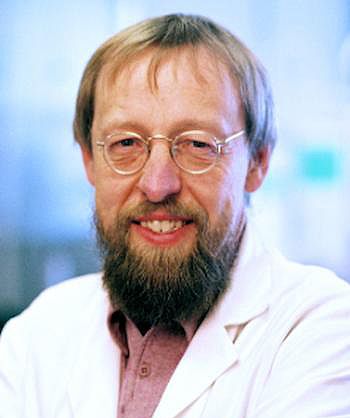
Kurt Straif
Research Professor
Kurt Straif
Research Professor
Kurt Straif is a physician and epidemiologist who teaches and conducts public health research with appointments in the Global Public Health and the Common Good Program, the Schiller Institute for Integrated Science and Society, and the Biology Department. Dr Straif served for almost two decades as a senior scientist with the World Health Organization’s International Agency for Research on Cancer in Lyons, France. There he directed the flagship unit within IARC that evaluates the carcinogenic hazards of environmental exposures and oversaw the writing and continuous updating of the IARC Handbooks of Cancer Prevention.
Global Observatory on Planetary Health

Philip J. Landrigan
Director
Philip J. Landrigan
Director
Philip J. Landrigan is the Director of the Program for Global Public Health and the Common Good. In addition to leading the program, he advises students, and teaches and conducts public health research within the Program. Dr. Landrigan is a pediatrician, public health physician and epidemiologist. His research uses the tools of epidemiology to elucidate connections between toxic chemicals and human health, especially the health of infants and children. He is particularly interested in understanding how toxic chemicals injure the developing brains and nervous systems of children and in translating this knowledge into public policy to protect health. He is a member of the National Institute of Medicine. Please see his faculty page for further information.

Kurt Straif
Co-Director
Kurt Straif
Co-Director
Kurt Straif is a physician and epidemiologist who teaches and conducts public health research with appointments in the Global Public Health and the Common Good Program, the Schiller Institute for Integrated Science and Society, and the Biology Department. Dr Straif served for almost two decades as a senior scientist with the World Health Organization’s International Agency for Research on Cancer in Lyons, France. There he directed the flagship unit within IARC that evaluates the carcinogenic hazards of environmental exposures and oversaw the writing and continuous updating of the IARC Handbooks of Cancer Prevention.

Lucinda Hiam
Visiting Scholar
Lucinda Hiam
Visiting Scholar
Dr. Lucinda Hiam is a physician and public health researcher from the UK with appointments as a 2025–26 Commonwealth Fund Harkness Fellow in Health Care Policy and Practice at Boston College and the Brown University School of Public Health. She combines work as a general practitioner with research on the social and political determinants of health, including the impacts of austerity, migration, and displacement, and has worked internationally with the World Health Organization, Médecins Sans Frontières, and the Ministry of Health and Medical Services in Kiribati. Her fellowship project seeks to understand how health policy can succeed in polarized environments by examining U.S. case studies where compelling narratives and broad, sometimes unlikely, coalitions have advanced public health.

Pushpam Kumar
Visiting Scholar
Pushpam Kumar
Visiting Scholar
Pushpam Kumar is Chief Environmental Economist and Senior Economic Advisor with United Nations Environment Programme (UNEP). Kumar’s core areas of competence are leadership in planetary and human health and mainstreaming of environmental changes into macro-economic policies and programmes, consensus building, dissemination, and capacity development in Project Management in Environment and development and Country engagement on SDGs.

Jaqueline Calderón Hernández
Visiting Scholar
Jaqueline Calderón Hernández
Visiting Scholar
Jaqueline Calderón is a Mexican researcher with 31 years of experience in the field of environmental health affiliated with the Autonomous University of San Luis Potosí (UASLP). She is a member of the WHO Collaborating Centre on Health and Children’s Environmental Health and Risk Assessment at UASLP. Calderón also leads the Innovation and Intelligence in Health Environment and Society Lab, an interdisciplinary research initiative which brings together experts in computer science, environmental science and public health. One of its current projects works on algorithms and AI with applications to cancer (breast and leukemia). Another focuses on neurotoxicants in drinking water and children’s brains and is creating digital solutions to bridge environmental science with clinical medicine to provide tools for evidence-based decisions. She holds a PhD in Biomedical Sciences focusing on Environmental Toxicology from the Autonomous University of San Luis Potosí.

Sancia Sehdev
Research Assistant
Sancia Sehdev
Research Assistant
Sancia graduated from Boston College in 2025 with a B.S. in Biology and a Medical Humanities minor. Her upbringing in New Delhi, India sparked her interest in how air pollution and climate change threaten public health, particularly in vulnerable communities. She spearheaded research with the University of Lausanne on how airborne particulate matter affects neural tissue properties in white matter tracts, earning recognition from the Goldwater Foundation. As an Environmental Justice-Climate Change Scholar with the Region 1 Pediatric Environmental Health Specialty Unit at Boston Children’s Hospital, she translated clinical insights into community-focused guidance resources on lead exposure and climate change. Sancia has also served as a delegate to the United Nations Framework Convention on Climate Change’s COP28 and COP29. She is passionate about bridging rigorous science with advocacy. Her current research quantifies the air pollution-associated cognitive and economic losses in Indian children, among other projects. Outside research, Sancia enjoys playing the piano, sailing, and exploring the outdoors.
Institute Development
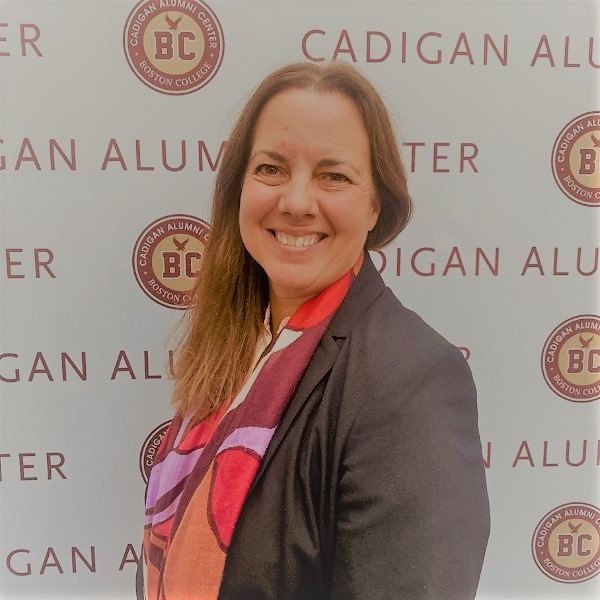
Sally Murray
Director of Development
Sally Murray
Director of Development
Sally Murray is responsible for advancing philanthropic initiatives for the Schiller Institute for Integrated Science and Society. She brings significant higher education development, alumni, and event experience. She most recently served as Vice President of Advancement at Curry College. Prior to this, Ms. Murray was the Director of Development for Boston College's Lynch School of Education and Human Development, the School of Social Work, the School of Theology and Ministry, and the McMullen Museum of Art. She holds an MPA from Bridgewater State University.
Schiller Student Board
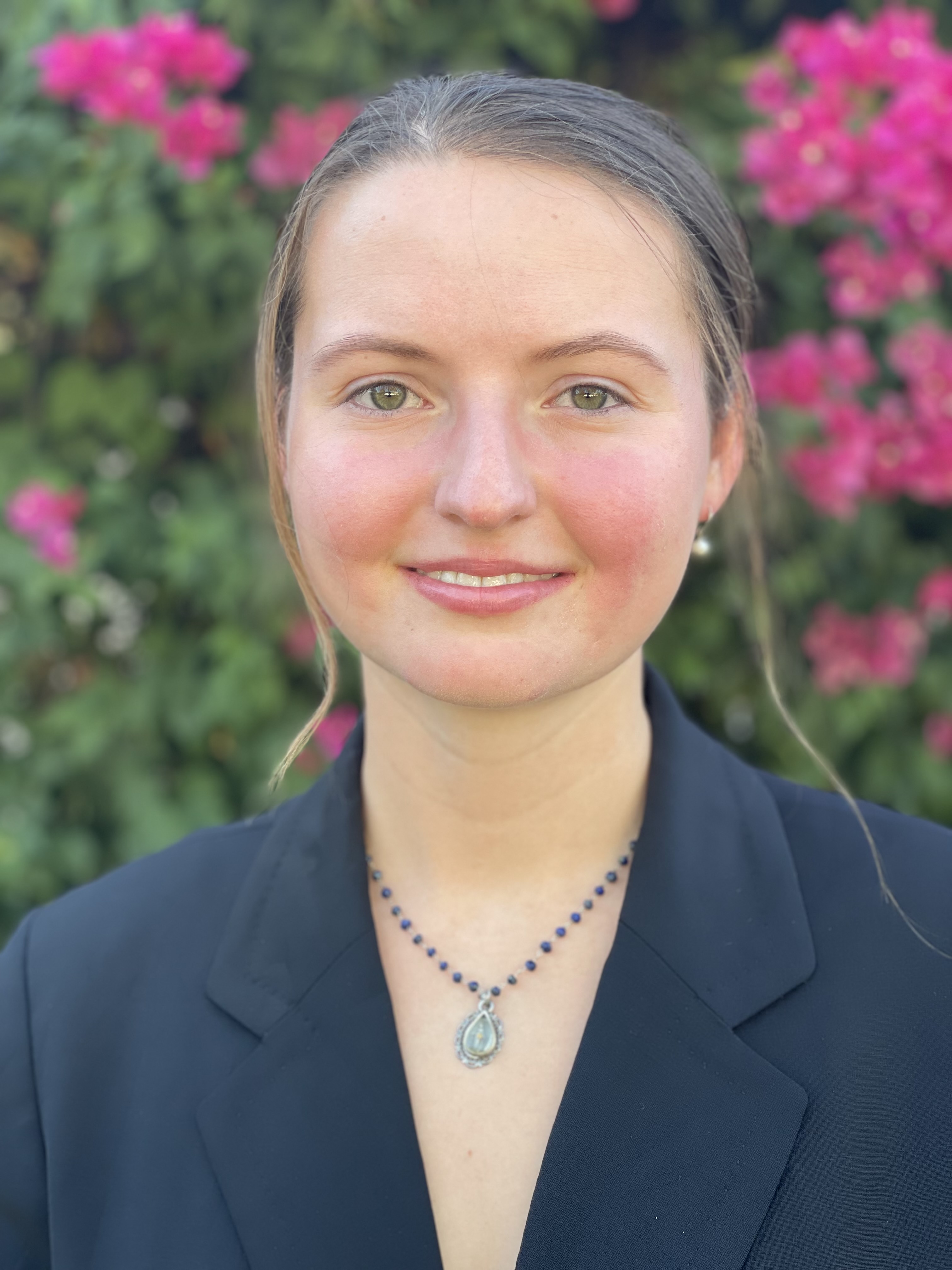
Elliana Steely
Student Board President
Elliana Steely
Student Board President
As a management and environmental studies double major I am passionate about new and innovative ways to improve our lives and our connection to the environment. I am honored to be a part of the Schiller institute’s student board because of the opportunity to support initiatives towards the vision of addressing complex issues in the fields of energy, health, and the environment.
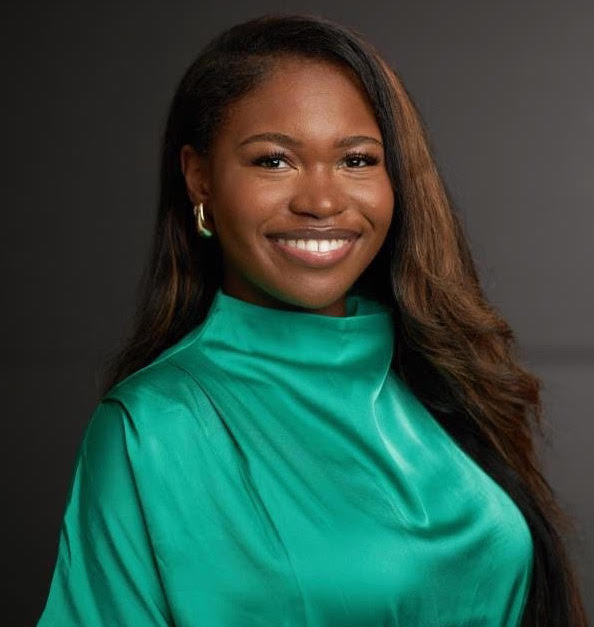
Munachi Onyiuke
Student Board Vice President
Munachi Onyiuke
Student Board Vice President
It takes a community to create progress. Schiller has the unique goal of taking a diverse perspective to advance science and technology to better serve the people in this world At Boston College, you will hear the words “interdisciplinary” more than a couple of times. It is beautiful to experience it and be a part of honing in on how it will not only advance the BC community but also the world. As a public health major, I know that it takes time to solve the global issues we face now, but it also takes decisive action. That is why I am here, to be a part of the solution using the wonderful platform the Schiller Institute has to offer alongside my fellow board members.
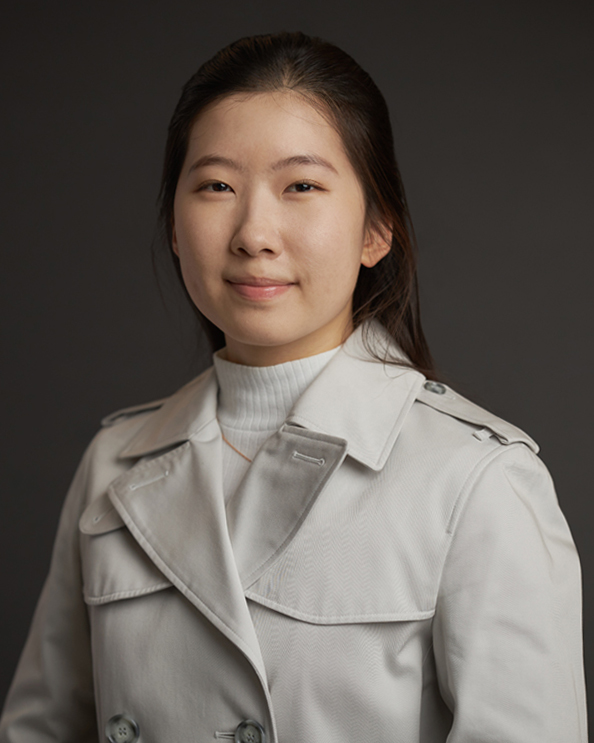
Hayoung Cho
Student Board Events Director
Hayoung Cho
Student Board Events Director
The Schiller Institute for Integrated Science and Society allowed me to start the Boston College chapter of Engineers Without Borders (EWB) and participate in multi-disciplinary research. Schiller's emphasis on student engagement in health, energy, and environment has given me the resources to practice equitable problem-solving skills, experience working with stakeholders, and travel to Jimma, Ethiopia for our research. I am deeply grateful for the interdisciplinary
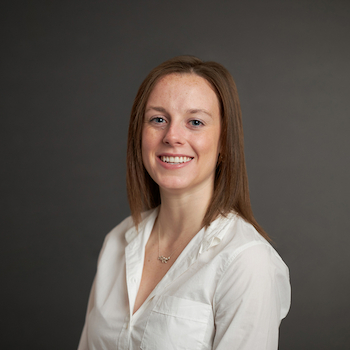
Taylor Vallas
Student Board Research Director
Taylor Vallas
Student Board Research Director
The Schiller Institute uses innovation to bridge academic disciplines, as well as tie these disciplines to society’s problems. It is incredible to be a part of a board that is driven to improve the environmental, energy, and health issues our world faces. This is essential in today’s world, and I am thrilled to have the opportunity to work with Schiller to create change for our Boston College community.
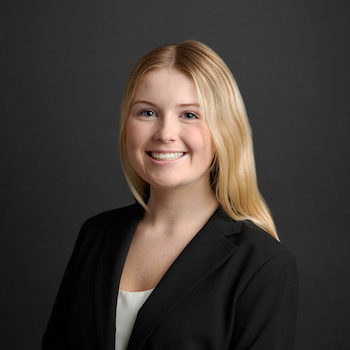
Carly McDermott
Student Board Communications Director
Carly McDermott
Student Board Communications Director
As a finance major, I am passionate about discovering how to integrate my interest in sustainability and the environment with my prospective career in the business world. The Schiller Institute’s student board provides the perfect opportunity for this interdisciplinary collaboration, better equipping us to create progressive impacts on inherently complex contemporary global issues. By encouraging the inclusion of different viewpoints and concentrations on the board, the Schiller Institute creates a welcoming environment for all who wish to continue educating themselves in and advocating for the environment, energy, and health.
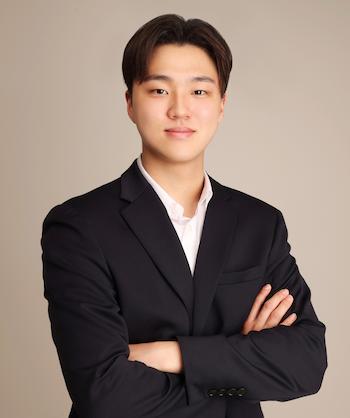
Junsoo Chung
Student Board Member
Junsoo Chung
Student Board Member
The Schiller Institute offers a unique platform to merge my academic background in Economics and Environmental Studies, fostering a comprehensive understanding of sustainable development. By integrating economic theory with environmental science, I am excited to explore how innovative policies and sustainable economic models can drive meaningful change. Engaging with the Schiller Institute will allow me to contribute to and learn from critical discussions that shape a more sustainable and just global future.
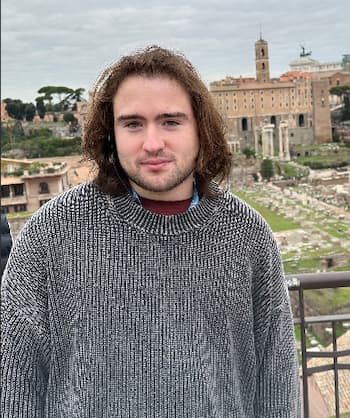
Parker Hunt
Student Board Member
Parker Hunt
Student Board Member
The Schiller Institute provides an invaluable opportunity to gain a comprehensive understanding of complex issues like climate change, energy sustainability, and human health. While my background is rooted in physical mathematics, I believe these issues require more than technical solutions. By fostering collaboration across diverse fields, Schiller enables us to develop practical solutions that keep the people, the policies, the economy, and the math in mind.
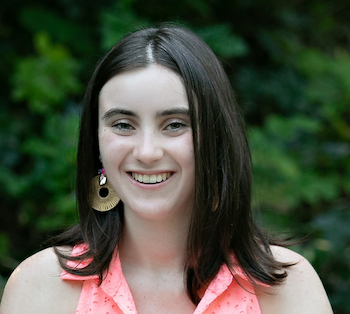
Eleanor McSwain
Student Board Member
Eleanor McSwain
Student Board Member
The Schiller Institute is truly a hidden gem. The Schiller Institute offers incredible opportunities to engage with topics related to energy, health, and the environment. I have been able to take advantage of many great opportunities through the Schiller Institute, such as going to Cambodia through their Working for and With Communities course, the Questrom $50K Sustainability Case Competition, and a climate change networking event. I am honored to be a part of such a wonderful organization.
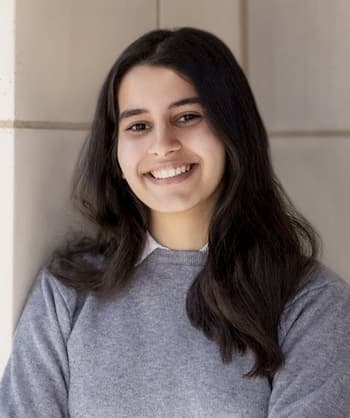
Sancia Sehdev
Student Board Member
Sancia Sehdev
Student Board Member
I appreciate how Schiller’s programs emphasize experiential learning, enabling students like me to actively engage with the intersection of energy, environment, and health. Serving as a UN delegate through Schiller's COP program showed me how I can combine my interests in climate and health, and demonstrated the potential impact of my work. Encouraging more BC students to participate in such formative experiences, where they can learn and grow, feels deeply meaningful to me.
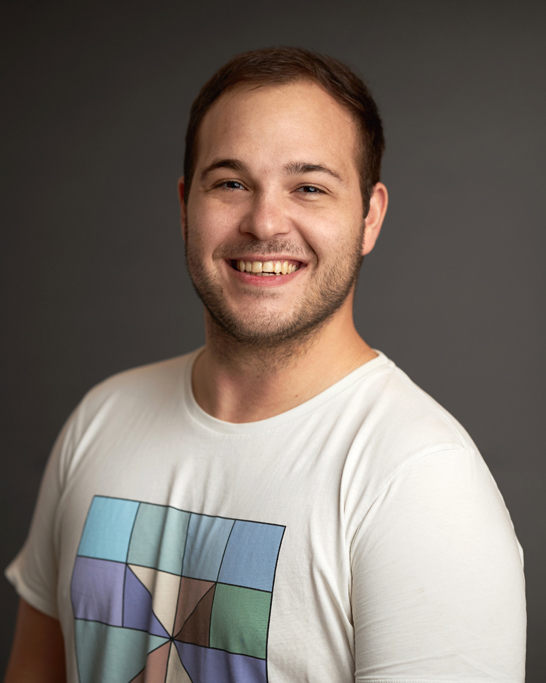
Jake Supino
Student Board Member
Jake Supino
Student Board Member
Schiller is a great place to better understand the intersection of science and society. As a scientist, I’m passionate about making sure that our science is communicated effectively and can be implemented across broad scales to improve the livelihoods of others.
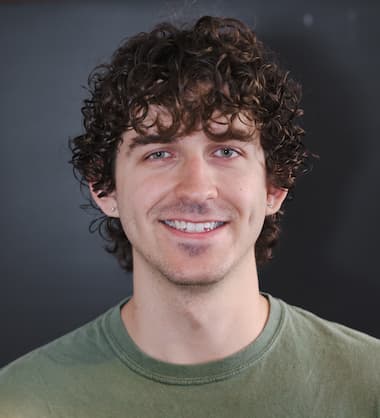
Ilan Valencius
Student Board Member
Ilan Valencius
Student Board Member
As an Earth and Environmental Graduate Student, I am interested in the connection between climate change and energy systems. Through the Schiller Institute, we have an avenue to engage in cross-departmental collaboration. My goal is to help other BC students engage in interdisciplinary study through the Schiller Institute.
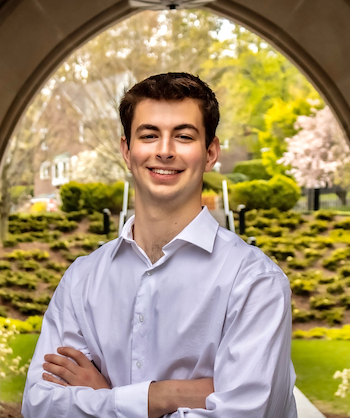
Andrew Williams
Student Board Member
Andrew Williams
Student Board Member
As a premedical student whose coursework does not always relate to environmental sustainability, the Schiller Student Board offers me a way to get involved with this cause. This Board is a space for me to collaborate with others to address sustainability-related issues within and beyond Boston College’s campus.

